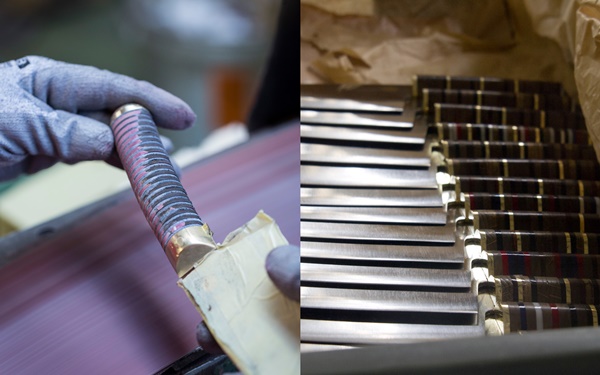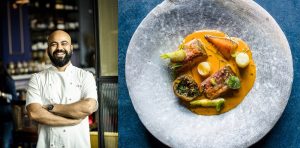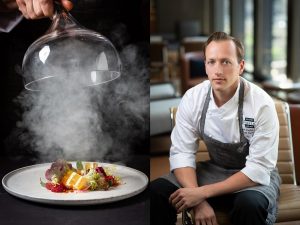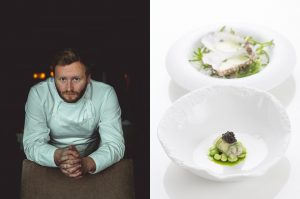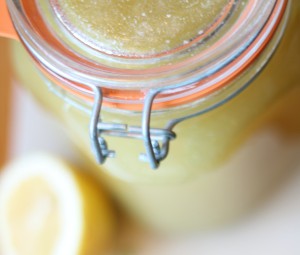Meet Knifemaker Tomer Botner of Florentine Kitchen Knives
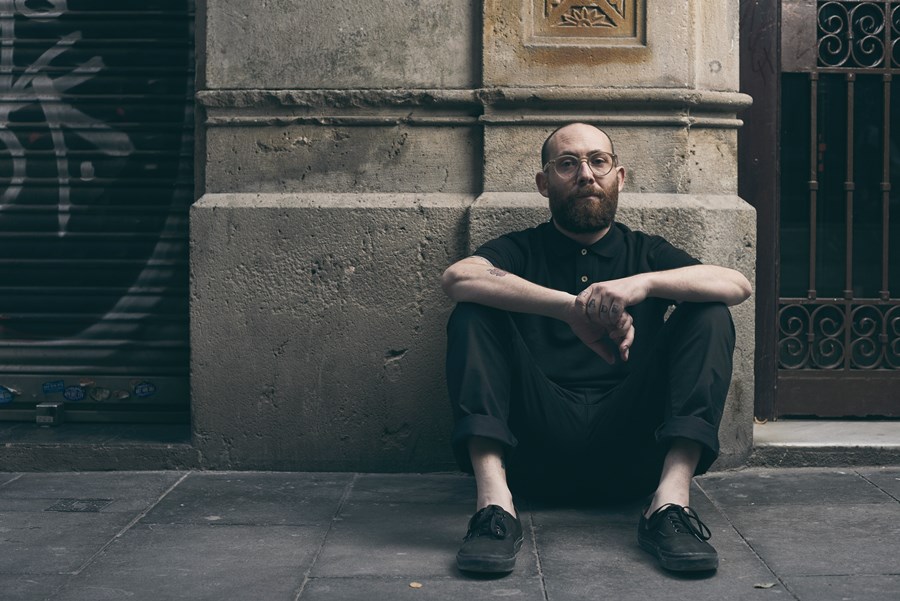
Tomer Botner is an industrial designer turned knifemaker. His company Florentine Kitchen Knives started in Tel Aviv but can now be found in Barcelona Spain. Meet the man behind one of the most sought-after kitchen knives in the industry in this Ateriet interview.
The most essential tool for any chef is the knife, there’s really no denying that. But who makes all these knives, how are they made and how can you tell? Tomer Botner knows more about knives than most of us. His company Florentine Kitchen Knives and the knives he makes there have become popular all over the world and Tomer Botner now supplies restaurants and chefs in most corners of the world.
A few years ago he relocated from Tel Aviv to Barcelona, Spain where he and Florentine Kitchen Knives opened up shop, let’s talk all about this and even more about knives with one who knows them best.
Florentine Kitchen Knives started in Tel Aviv but you relocated to Barcelona. What made you do that move?
Firstly, my ancestors were ”encouraged” to leave here about 500 years ago so I was due for a visit. But to answer the question then it was pretty spontaneous. We felt like we should try another place for a while and we just did it. Obviously we had our reasons to leave; it’s a pretty big question and as someone who usually feels like politics is always attached to the answer when someone asks you “Where are you from?”. I love Tel Aviv. I was born there, it will always be my home and there were very few reasons to leave it… But they were pretty big ones.
I always say that Israel is an island which is very hard for a business that deals with actual physical products. I wanted more for my business and by moving I left behind a lot of shipping costs and customs costs for my clients, a lot of material and machinery costs for us etc. I’m very happy to be a member of the EU; I can hop on a plane to meet a client and chance are I’ll be there in 2 hours. I can have dinner and a good talk and be back in the studio the next day.
Staying in Israel would have made all this quiet time to consume and not practical. Also, the timing was right; it was probably the last chance for Noam and me to leave and try another place as a couple and not as a family which turned out to be very soon since Noam got pregnant 3 months after we moved here. And then there’s the why not? Barcelona is not a bad place to live.
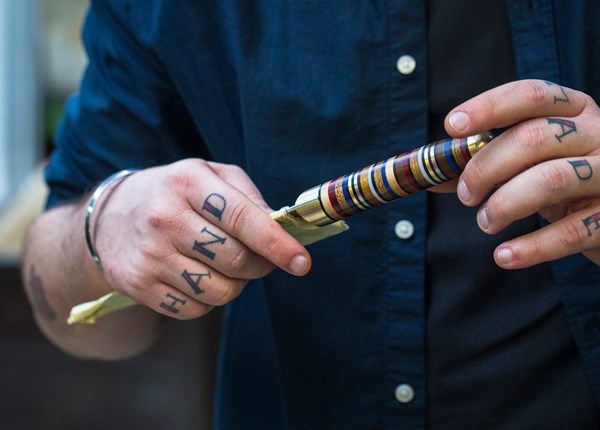
Your knives have been getting worldwide recognition and you supplied top restaurants and chefs in most parts of the world. How did it start?
Like all good things, it began with a big failure. I flunked my thesis in my final year in college and had to re-do it. I was studying industrial design and I considered myself a pretty artsy student. After failing I became much more focused and I decided that I was going to have a great year and come out of school with my degree and a great product, which I had hoped to start manufacturing and basically have a job.
And so I did. I picked the chef and paring knife set as my project and just worked very very hard to make something great, but also new and fresh and connected to where I’m from. I was lucky. I think I have good intuition and I’m too dumb to be afraid, but smart enough to make it. I started a crowdfunding campaign to get 10,000$ so I could start, and with the help of countless friends and family members we reached our goal and made our first 100 knives which were pretty badass.
You come from a restaurant background. Was that the reason why you started making kitchen knives?
I only spent a short time as a cook in the 10 year period I was working in restaurants. I come from mostly front of house and a bit of management in the industry, but I really like to cook at home and I’ve been fortunate to have worked with a few great chefs, and I just got that bug and started exploring it myself and the knife is king in the kitchen.
Knives are probably the 2nd tool mankind has created and I think all of us have a strong connection to it. Me it’s just a little bit more I guess an once I got a bit into it I was just pulled in as there is so much to know for such a simple tool. Making it has so many variations and so many different ways of going about it. It’s very interesting to me and a learning experience which would probably last my lifetime which is a pretty amazing thing to think about and experience.
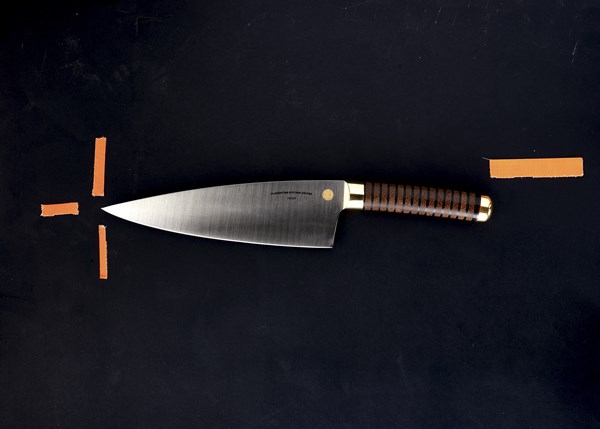
Crafts, in general, have become more valued in the years. Do you think we will see more people pursuing their dreams the way you did?
As someone living it I would say that we are already in the post-craft era. Sometimes it looks to me like everybody cooks and everybody makes something with their hands – and I think it’s pretty amazing. I was a history student for a year in Tel Aviv University. This doesn’t mean I know anything about history and it’s not very romantic. But what I think I did figure out is that everything has an economic reason.
So yes, if there is a demand for this kind of products then there will be more designer-makers, and it also feeds itself and elevates the quality of the work and products because makers are also consumers. Also with social media, YouTube etc it’s become so much easier to learn and better your craft by learning from other people which makes the journey less intimidating.
Let’s talk process. From an amateur, how do you even make a knife?
Normally I would just put a link here to one of 1 million YouTube clips, but if I try and sum it up then there are many ways to make knives, but the essentials are a hardened steel and a place to hold on to without cutting yourself. With these two basic demands you can get thousands of variations, so when you start adding a bit more demands you only increase your choices. If you want to go into knife making you just need a place that you can get dirty, a vice, some steel, some handle material, epoxy glue, sandpaper and some files or an angle grinder.
The big challenge is the heat treatment which is what the blade needs to go through to become hard enough to cut things effectively, and last you need a bit of time. You can start by outsourcing that part of the job or just start a fire and see what happens… I would recommend wifi too in case you feel like you’re stuck or did something wrong.
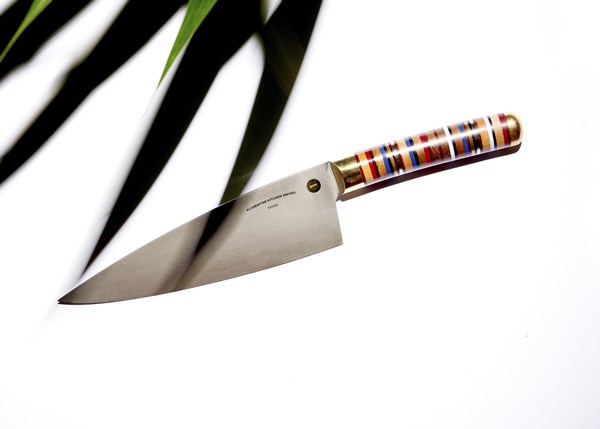
How can you tell if a knife is good? Is it even possible to know?
Good is a difficult thing to define but usually you know over time. Good can be for the job you need it to do, for your physical attributes, for your cutting skills, the environment you use it in or even your budget. Having said that I also believe that people can feel quality when they take a close look at something and hold it in their hands. Or you can just read the online reviews.
I guess you’re a whole team involved in making the knives from start to finish. How many people are involved with making a knife?
Actually, no. Just a couple of people are involved.
One of the things that stand out with your knives are the beautiful handles. How do you make them and what materials do you use?
Thank you. We use an ancient technique called stacking that we have modified a bit to fit our design. What we do is just cut a bunch of discs from different materials like woods, leathers, micarta, brass and steel. Then we put the bolster first, stack and glue the discs together on the tang of the blade, screw the pommel on at the back, then we sand everything down to shape, make sure it fits well together and polish it.
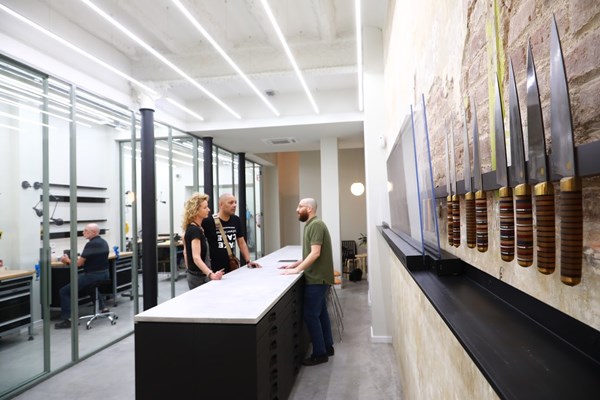
Have you considered making other kitchen tools?
We always have ideas of course, but right now we want to focus on one thing – culinary knives – and reach a level of product and skill that is as close to flawless as possible. At this point in my life I’m more interested in becoming a true master of stock removal knife-making than expressing more ideas through different designs or products.
However, with my background in product design I feel like I can tackle pretty much any project, I may not know a lot about something to start with but my skills and natural inclination allow me to learn fast, which is basically telling the difference between what matters and what doesn’t.
Sometimes you hear the saying “if you buy a quality knife it will last a lifetime”. I think that’s true but we still have trends when it comes to knives. How do you tackle that as a designer?
I see a lot of knives and makers, and I’m influenced by them and it naturally translates itself into my style. But I’ve learned early that you have to make what makes you happy and what is in the spirit of your personal time. Otherwise, the tool will not have any soul or inspiration in it, not to mention that it won’t be as good. The world is pretty big and today it’s easier than ever to reach many people, so eventually you will find them or they will find you – the ones who see and feel things like you do.
Trends come and go but a personal style however it may evolve over time, lasts forever and for us (us and our branding studio since day one and best friends – Gymnasium Design Office, London) it was always important to stay true to it. I think that in knife making I wouldn’t call it trends, more like waves that have more to do with what technology became available or what new materials came out to the market. This pushes all of us forward and in the good case it’s more than just a style; it has an effect on how knives are being made and how they perform.
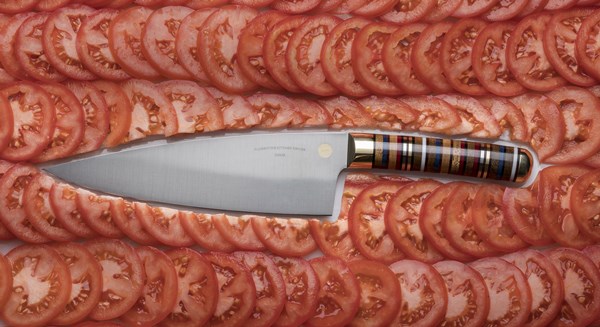
Do you have a favorite knife to make?
I haven’t made my favorite knife yet. That’s the reason why we change designs every year. We keep trying to make it better and better.
Scary one to wrap things up. What’s the worst you cut yourself?
Let’s just say that you should never ever clean an 800mm blade with your fingers going towards the edge. I sliced a pretty nice piece off my index finger. Luckily we had a veterinarian a couple of doors up the street and he patched me up quickly and now I almost look normal.
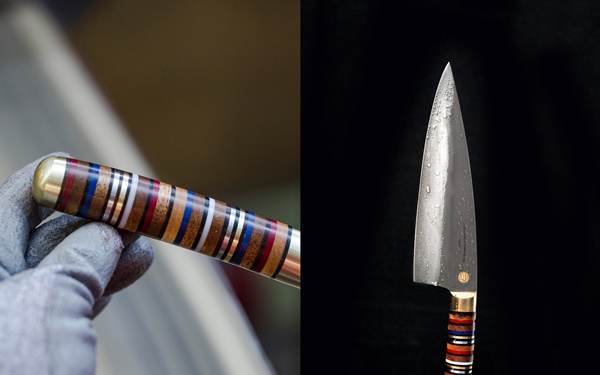
Thank you Tomer Botner for your time and keep doing great knives. To read more about Florentine Kitchen Knives visit them online here. If you ever find yourself in Barcelona they are located on Carrer Del Notariat. There you can check out the shop and all the knives made by Tomer Botner and business partner Noam Blumenthal.
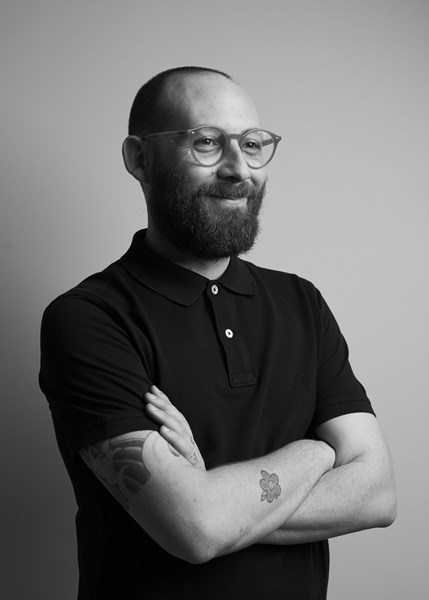 Name: Tomer Botner
Name: Tomer Botner
Profession: Knifemaker
Previous Profession: Product designer and fashion designer.
Birth City: Tel Aviv
Current City: Barcelona
About Interviews at Ateriet
Since I love food I also love people working with food. That mainly shows in my Chef Q&A where you can meet some great chefs from all over the world. But being a Chef is not the only way to work with food so in the future there will be more interviews here at Ateriet, check the Ateriet Interviews link for more. If you know anyone who would be a good fit for an interview here at Ateriet send me an email or connect on social media.
